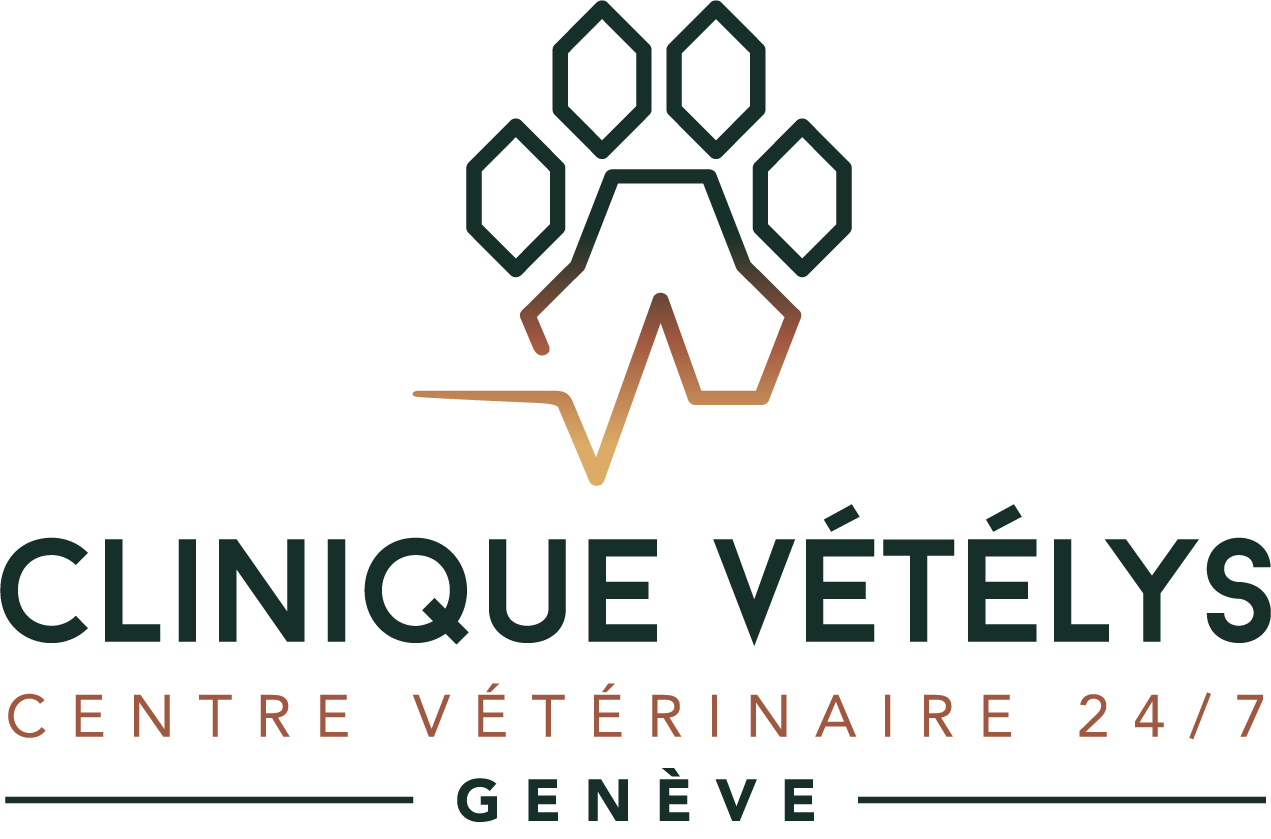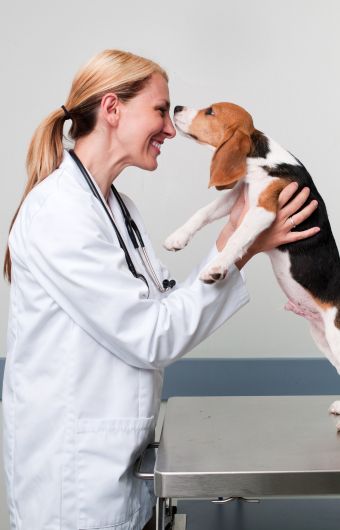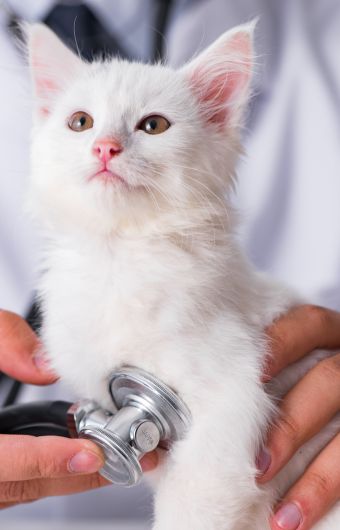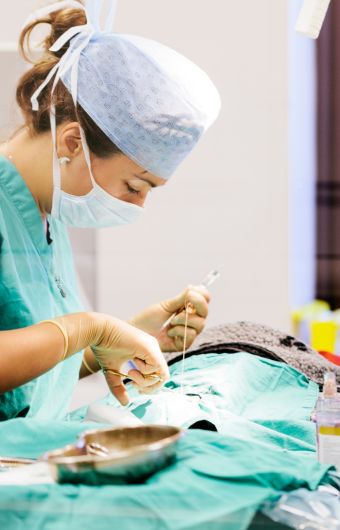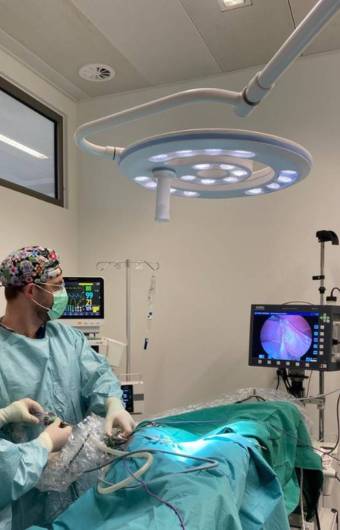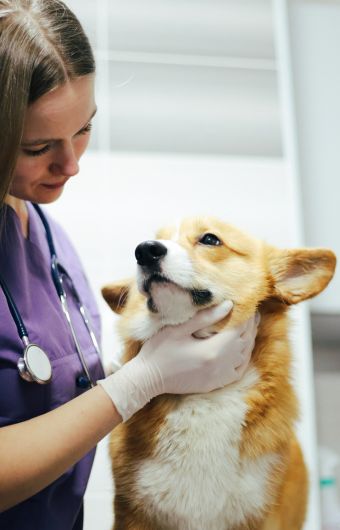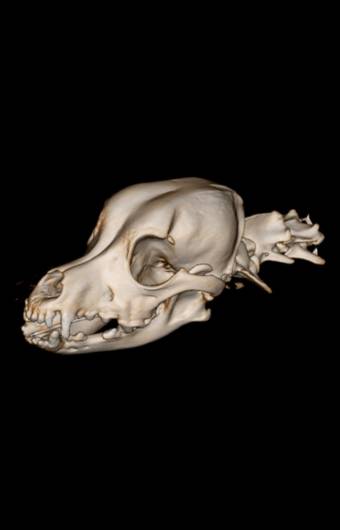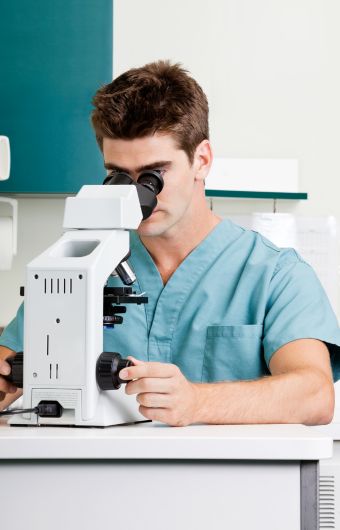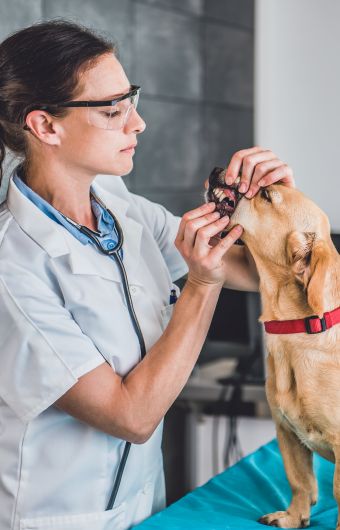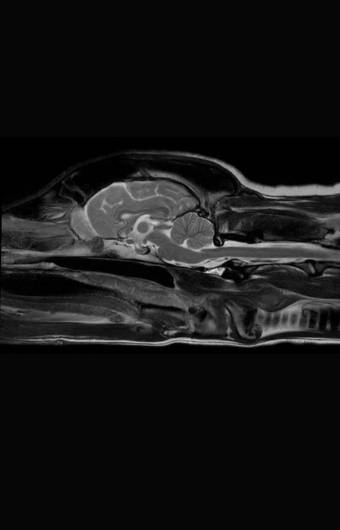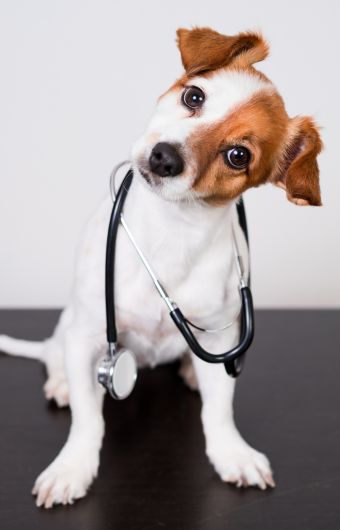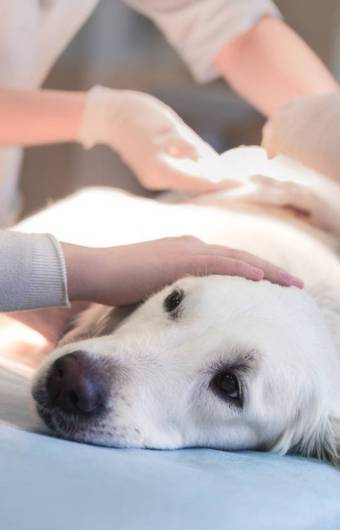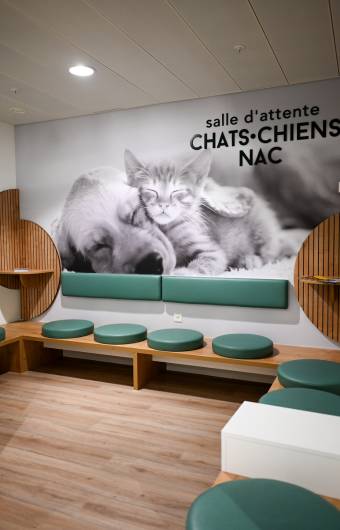Medicine and surgery for new pets (NAC) in Geneva
New companion animals (NACs), such as small mammals, birds and reptiles, require care tailored to their specific needs. At the Vétélys clinic in Vernier – Geneva, we offer comprehensive expertise to meet the medical and surgical needs of these delicate species.
Thanks to specialised equipment and a team trained in the latest advances in NAC veterinary medicine, we offer personalised care, from prevention to the most complex surgical treatments.
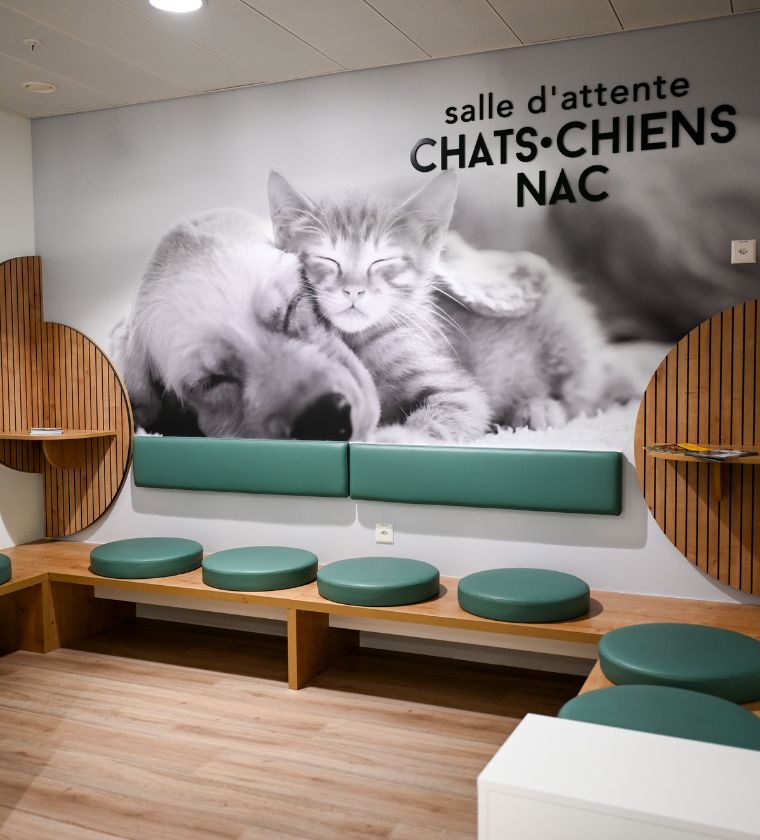
New Pets (NAC)
When to book an appointment?
Is your pet in a worrying condition? Find out the main reasons for contacting our New Pet Medicine and Surgery service in Geneva and being treated by one of our vets.
Signs of disease in NACs
NACs often have a rapid metabolism and subtle signs of illness. Contact quickly if your pet shows :
● Decreased or loss of appetite
● Any change in behaviour, even subtle (sleeping more than usual, the animal goes to a place where it never usually goes, etc.) goes to a place where it never usually goes…)
● Breathing problems (wheezing, difficulty breathing).
● Weight loss or dull coat/plumage.
● Lethargy, abnormal posture or difficulty moving.
● Skin, eye or mouth problems.
● Changes in stools or lack of elimination.
Recommended consultations
● Preventive visits to check general health and vaccinate (ferrets, rabbits).
● Biennial health checks to detect pathologies early.
● Post-adoption check-up to verify keeping conditions (environment,
feeding).
● Pre- and post-hibernation visits for your tortoises.
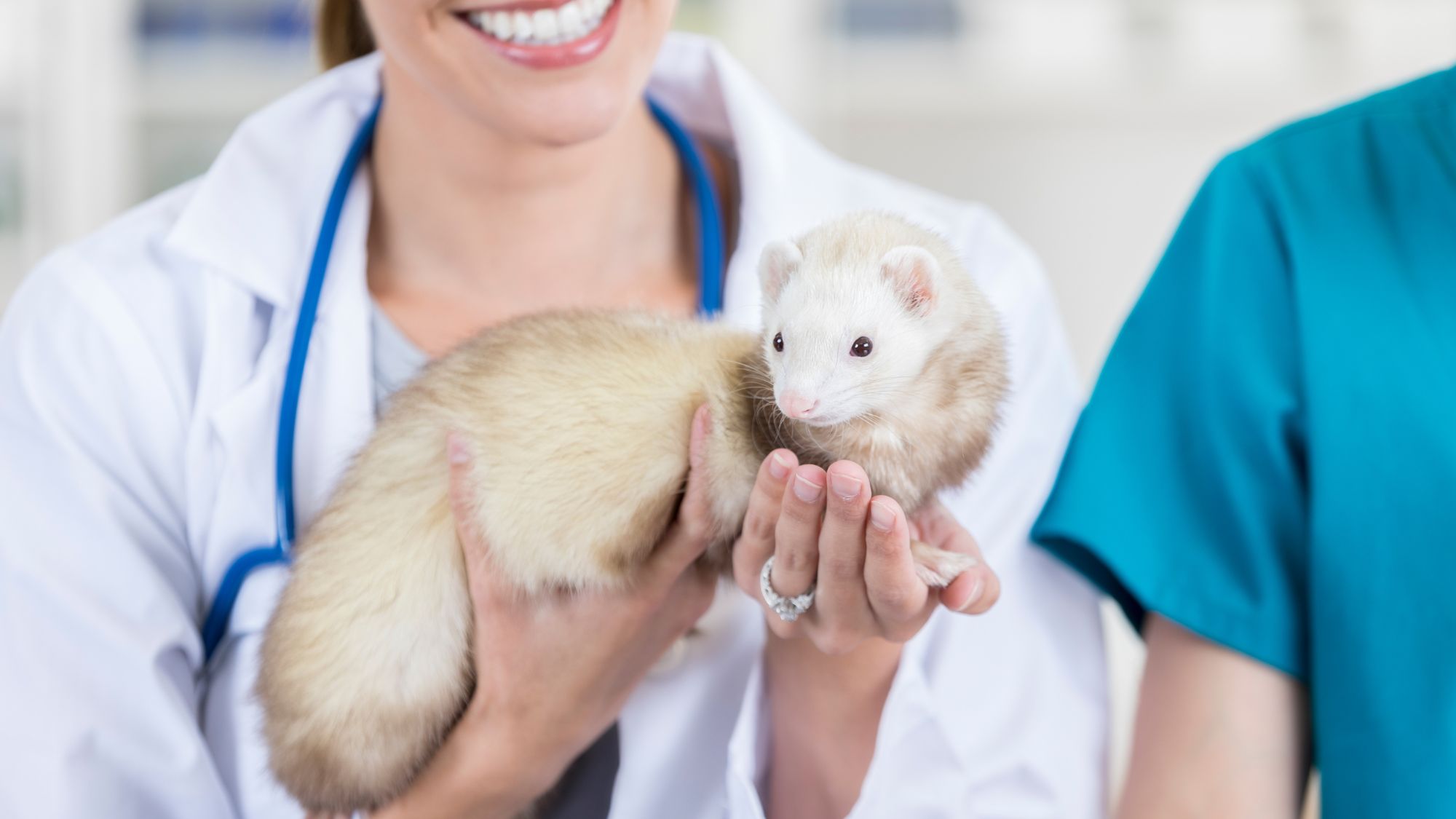
New Pets (NAC)
Our services
Is your NAC in a worrying condition? Here are the main reasons why you should contact our New Pet Medicine and Surgery department in Geneva and be seen by one of our vets.
Preventive medicine
● Vaccination and antiparasitics: prevention of infectious diseases and infestations.
● Health checks: growth monitoring, screening for common diseases in NACs.
● Breeding advice: environment, nutrition and specific behaviours.
Specialist medical care
● Screening and treatment of respiratory diseases: frequently encountered in birds.
● Treatment of digestive diseases: frequently encountered in small mammals and reptiles.
● Management of metabolic diseases: such as nutritionally-induced secondary hyperparathyroidism in reptiles.
● Dermatology and care of feathers or scales: resolution of skin disorders and moulting disorders.
● Diagnosis and treatment of ferret diseases: insulinoma, pancreatitis, lymphoma, cholecystitis, etc.
NAC Surgery
Our surgeries are carried out using techniques adapted to small species, to minimise risks:
● Sterilisations: castration and ovariectomy/ovariohysterectomy of small mammals, ovariectomy and castration of reptiles, salpingectomy of birds.
● Removal of nodules and tumour masses: meticulous surgery for common tumour pathologies.
● Emergency surgery: digestive obstruction, injuries or fractures.
● Specialist surgeries: such as pinning for complex fractures or care of cracked shells in turtles, or endoscopy of air sacs in birds.
Emergencies 24/7
New Pets (NAC)
What happens during a veterinary consultation for your
NAC in Geneva
A veterinary emergency consultation in Geneva takes place in 4 stages: you make an appointment, you prepare your animal for the consultation, you meet us for the consultation, you collect your animal or you visit it if hospitalisation is necessary.
Interview with the owner
Information on lifestyle, environment, diet and symptoms.
Clinical examination
Observation of behaviour, palpation and auscultation adapted to the specific characteristics of the species.
Additional examinations
Digital radiography and ultrasound to diagnose pathologies
internal pathologies.
- MRI or CT scans for the most complex cases.
- Blood or stool analyses to detect infections or deficiencies.
Treatment plan
Appropriate medical, surgical or environmental recommendations.
Answers to your questions
Find out more about the
New Pets (NAC) consultation
by Vétélys
My NAC seems to be in good health, why consult a specialist?
NACs, apart from ferrets, are prey in the wild and therefore often mask their illnesses. A preventive visit can detect disorders before they become serious or irreversible.
What is the most important care for my NAC?
It all depends on the species. A balanced diet, a suitable environment (temperature, humidity) and regular check-ups with the veterinary surgeon are essential for their well-being.
Do NACs require vaccinations?
Some small mammals, such as rabbits and ferrets, require vaccinations to prevent diseases such as viral haemorrhagic disease or distemper.
Consult us for a suitable protocol.
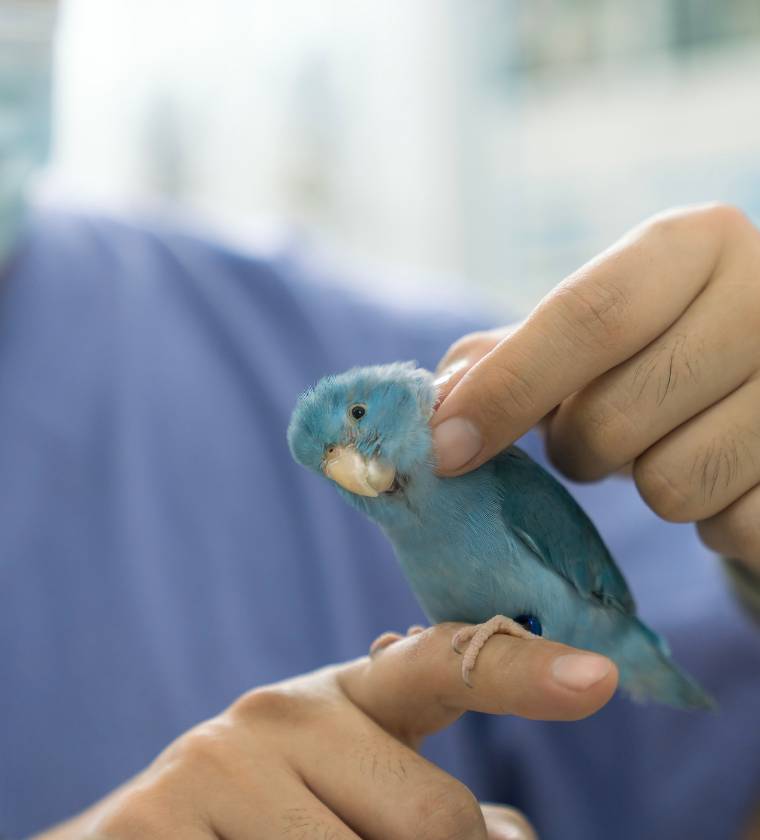
Testimonials
They’ve been to the Vétélys clinic
I would like to thank all the people who looked after my little Rabbit, they all immediately put me at ease, gave me news every day as well as taking the time to answer my questions and listen to my fears. My little Rabbit was able to return in great shape to the place where I had brought her in a critical condition, I can’t thank you enough.
Very good listener, patient and gentle with animals.
I called them urgently at 8:30 for my Tonerre and at 9:15 he was taken care of.
First experience of a vital emergency for my hamster. Exceptional care, explanation of the risks involved, transparency in the treatment. Available and attentive. I recommend +++
We feel that they really care about our animals’ health and, what’s more, we always get all the explanations we need to understand their minor or major pathologies. Thank you to the whole team for their friendliness and the seriousness of their work.
The team is very attentive and the vet is only interested in your pet’s well-being, not in billing for unnecessary procedures. I recommend this establishment, which is also very clean and easy to get to.
I rarely post public reviews on the internet but I wanted to thank the Vétélys clinic team for their welcome, care and kindness. I took my parrot there after my usual vet refused to do any further treatment other than euthanasia because I couldn’t afford to pay for it straight away. The clinic welcomed me as a new client as if I were a regular there and put the welfare of my bird before finances and trusted me to pay my dues later. The NAC vet is brilliant, both with humans and animals and took over an hour and a half of her time to do the necessary tests and discuss/explore possible options and prescribed pain relief in the meantime. A rare thing that I respect immensely: the vet had no misplaced ego and had the humility and frankness to tell me that if there was to be surgery, she didn’t have the necessary equipment on site and redirected me to one of her colleagues. A month later, my parrot was back in shape and didn’t need any further treatment but I’m really touched that she put my bird’s welfare first and suggested another clinic rather than offering an option that was technically feasible locally but not necessarily the best for the bird. She answered my emails when I had questions and her calmness allowed me to take the time to choose what to do or not to do with all the necessary information clearly explained. I was lucky my bird recovered without surgery but I will never forget the clinic’s response to a crying, financially limited owner. I’m posting this comment as I’m about to transfer the balance of the bill, for which I’ve been put under no pressure. I’m going back for a check-up x-ray but I’m definitely going to do the annual check-ups for my parrots at home. Thank you for your work and your confidence. Go there with your eyes closed.
Expert insight
A few tips for looking after your NAC:
● Optimum environment: respect the specific needs in terms of temperature, light and space requirements of each species.
● Adapted diet: avoid nutritional errors (mix of seeds too rich in carbohydrates and lipids for birds, excess protein for reptiles).
● Careful handling: NACs are often fragile and stressed by inappropriate inappropriate handling.
● Watch out for subtle signs: subtle changes in behaviour may indicate a health problem.
Dr. Dresse Méd. Vét. Laetitia Garbay , NAC expert, advises
“NACs have very specific needs. Unsuitable food or a non-optimal environment can have serious consequences. Consult us regularly to ensure their well-being.”
Consultations
● Basic consultation (30 to 45 min): CHF 72 to 85
● Specialist consultations or emergencies: CHF 165
● Routine surgery (sterilisation, removal of masses): personalised estimate depending on the procedure.
We provide a detailed estimate for all surgical procedures and complex care.
Clinic specialties
Discover our other specialties
